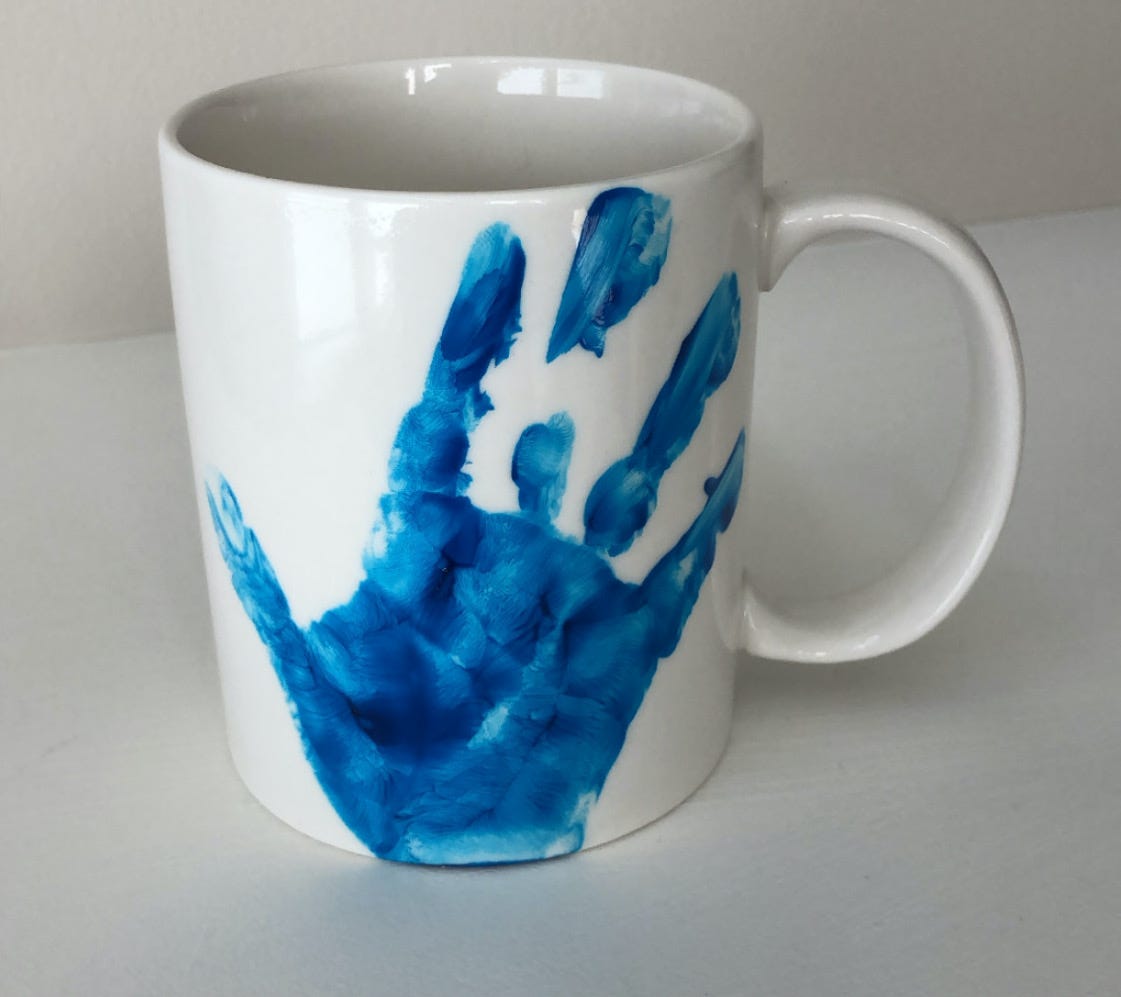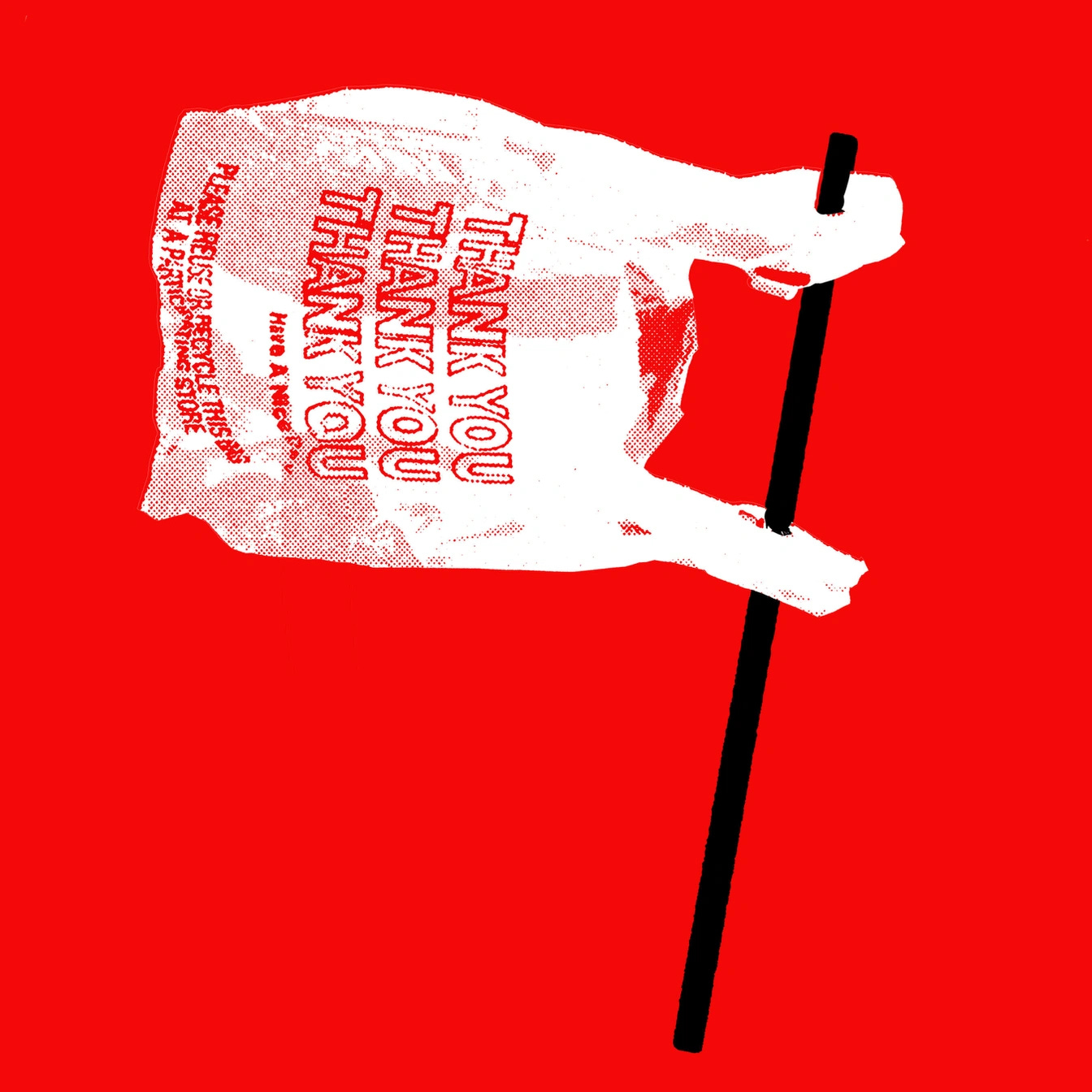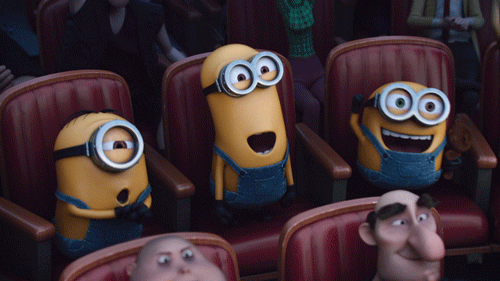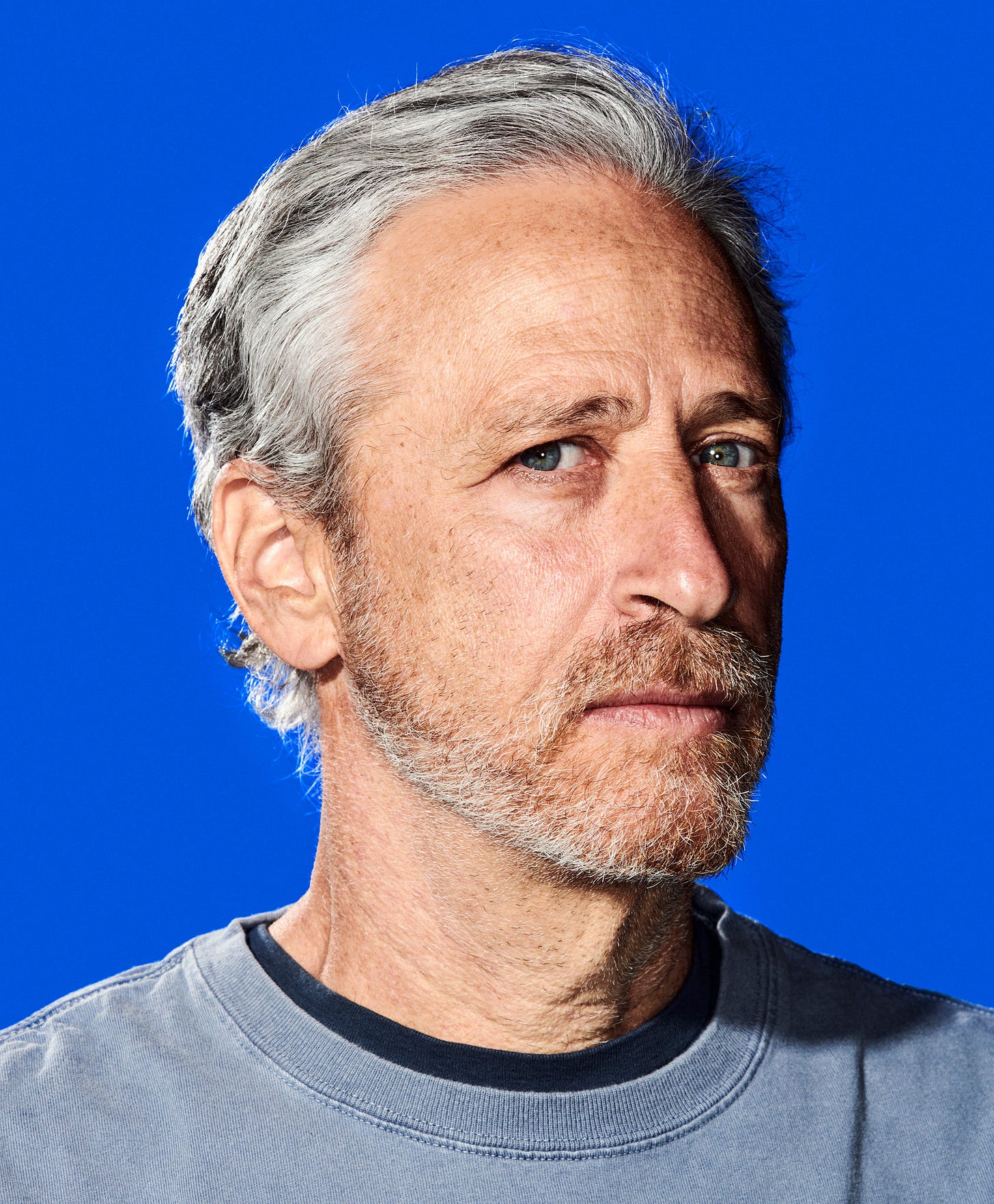I Cut My Burgers in Half
Tippets by Taps - Issue #139: Father's Day, Restaurants, movie theaters, Jon Stewart, and more!
I love burgers. A delicious mix of meat, cheese, toppings (bacon, mushrooms, caramelized onions, and a fried egg if I’m lucky), and bread comes together in a terrific bite. Now, most people see a burger, pick it up both hands, and dig right in. Not me. I cut my burgers in half.
I’ve split my burgers for as long as I can remember. I get a knife, cut the burger down the middle, and eat one half followed by the other. That’s just the proper way to eat a burger. Rishi’s way of eating a burger. But the truth is it is not my way. It’s my dad’s way.
A few years before I was born, my dad was in a major car accident. A horrible combination of Canadian winter, black ice, and an oncoming pickup truck left him hospitalized for six months. One of his five surgeries was on his jaw, which needed to be set post-accident. Unfortunately, the surgeons set his jaw incorrectly the first time which meant my dad had to make a difficult choice: leave the jaw set as is (limiting the width he could open his mouth to 2.5 cm) or rebreak and reset his jaw. He chose the former. What is an unforeseen consequence of not being able to open your mouth wider than a few cms? You can’t fit a burger, bun, and fixings in a single bite. Which means you cut your burgers in half. It’s the only way I’ve ever seen my dad eat his favorite burger (coincidentally, with bacon, mushrooms, caramelized onions, and a fried egg), and it’s the only way I’ve ever thought to eat mine.
Today, as I eat my Roam Tejano burger, watching my almost-two-year-old play, I reminded how much a child’s world view is reflective of their parents. We are our children’s models for the world, their superheroes. They pay attention to everything, pick up on even the smallest cues, and copy us in all things - big, small, and beefy.
Happy Father’s Day to all the dads out there.
And to my dad: I love you. Thank you. I hope you enjoyed your burger today, as well!

An Extinction Event for America’s Restaurants
This week’s long read is an examination of American’s restaurant industry by Matt Goulding, best-selling author and four-time James Beard Award winner. I highly recommend a click. The piece explores the history of the restaurant industry, the problems that existed in the industry long before COVID (low wages, rampant sexual harassment, deep-rooted discrimination, abysmal working conditions, and razor-thin profit margins), and what the future might hold for food in America.
COVID has, understandably, hit restaurants hard. Congregating with others in close proximity while sharing food is literally the opposite of what one should be doing during the pandemic. The change has been swift and cut deep. Recent estimates suggest “20 to 80 percent will permanently close”. The variability highlights just how uncertain the future is for an almost trillion dollar a year industry which employs 15 million people. Help is not on the way either - “despite food-service employees making up more than 60 percent of early unemployment claims, restaurants received less than 9 percent of the overall small-business loans”.
I hold out hope organizations like the Independent Restuarant Coalition will successfully raise awareness and convince regulators to support the millions of people that will satiate our future stomachs. It is dark times right now, but as Goulding writes, “the pandemic could offer an opportunity for restaurants to remake themselves into something…better.”
But the great restaurant die-off will upend city dwellers’ world. Not just because it will reduce the number of food options, but because it will limit the ways people come together to celebrate, contemplate, and release—to find meaning in lives otherwise circumscribed by small personal spaces.
The restaurants we love most are never just restaurants. They are mirrors, reflecting the interests and imperfections of the society they feed. They are libraries, repositories of tastes and stories and ideas that catalog our culture. They are power strips, where civilization goes to plug in.
Every time we eat out, we vote for a version of country or community that matters to us. Most of us do this unconsciously, but behind every bite is a matrix of economic, political, and cultural values. In some ways, our forks and our food dollars are the purest tools of democracy we have, and as we lose restaurants, we lose a vital piece of our voting rights.

Additional reading material on the subject: The Case for Letting the Restaurant Industry Die
Cinemark Announces Four-Phase Reopening for U.S. Movie Theaters, Starting June 19
From restaurants to movies…you can probably tell where my head is. Like restaurants, the old movie-going experience doesn’t exactly lend itself to maintaining distance from others. Adapting to a new normal is required, and this week Cinemark (and later AMC and Regal) announced their plans for reopening and getting us all back to the movies. On its quarterly earnings call this week, Cinemark unveiled a four-phase / four-week reopening plan. The goal: all of its 344 theaters open ahead of the July 17 release of Warner Bros.’ Tenet, the Christopher Nolan summer blockbuster expected to be year’s cash cow. Some new measures being taken:
Limited seating: Cinemark plans to limit seating capacity to 50%, with 6 feet between patrons for social distancing; moviegoers will need to book seats in advance rather than the usual first-come, first-served scenario. The reservation system will then block off seats around the customer so that everyone will be spaced at least 6 feet apart
Contactless: There will be a push to increase contactless, mobile phone-based sales for both tickets and concessions
Discounted ticket prices: Up until the release of Tenet, Cinemark will show older titles, with tickets discounted to $5 for adults and $3 for children and seniors with no upcharges for Cinemark’s XD premium large-format screens; Upon the release of new titles, ticket prices will go back to what they were before the shutdown
Employee and customer safety measures: Employees at Cinemark will undergo wellness and temperature checks and be required to wear masks, while floor stamps and Plexiglass barriers have been installed to enforce social distancing in high-traffic areas; customers will be required/strongly encouraged to wear masks, depending on regulations
The Four-Phase reopening plan:
Phase 1 (June 19 weekend): Will see a “test phase” where five theaters in the Dallas-Fort Worth, TX area will reopen
Phase 2 (June 26 weekend): Approximately one-third of Cinemark’s theaters – specifically, those in larger markets – will reopen
Phase 3 (July 3 weekend): An additional one-third of theaters will reopen
Phase 4 (July 10 weekend): All of Cinemark’s locations (numbering 344 as of February 2020) will be open by that date
I love the movies. I find them a great escape from reality and, as my friends will tell you, I am easily entertained (National Treasure anyone?) Watching a movie in the theater is the best experience. Big screens, fantastic sound, and most importantly, no other screens pulling you away from the experience. I hope that these actions work, keep employees and customers healthy and safe, and build consumer confidence so we can all get a break from reality.

Jon Stewart Is Back to Weigh In
I love Jon Stewart. His ‘Daily Show’ monologue was a daily watch for me, his unique brand of satire, smarts, and insight usually teaching me something new. Trevor Noah has done a phenomenal job taking over from Stewart, but I can’t help but wonder what the last few years, in particular, would have looked like had Stewart had a podium to speak from. In this interview, he offers his perspective on the media, the recent tragedies, and a taste of what his show might have felt like. Excerpted quotes below.

‘Twenty-four-hour news networks are built for one thing, and that’s 9/11. There are very few events that would justify being covered 24 hours a day, seven days a week. So in the absence of urgency, they have to create it. You create urgency through conflict.’
We continue to make this about the police — the how of it. How can they police? Is it about sensitivity and de-escalation training and community policing? All that can make for a less-egregious relationship between the police and people of color. But the how isn’t as important as the why, which we never address. The police are a reflection of a society. They’re not a rogue alien organization that came down to torment the black community. They’re enforcing segregation. Segregation is legally over, but it never ended. The police are, in some respects, a border patrol, and they patrol the border between the two Americas.
It can be true that you can value and admire the contribution and sacrifice that it takes to be a law-enforcement officer or an emergency medical worker in this country and yet still feel that there should be standards and accountability. Both can be true. But I still believe that the root of this problem is the society that we’ve created that contains this schism, and we don’t deal with it, because we’ve outsourced our accountability to the police.
It’s legislators’ ability to address the issues inherent in any society — and the reason they can’t address them is that when you have a duopoly, there is no incentive to work together to create something better. Plus, you have one party whose premise is that government is bad and whose goal is to prove that, which makes them, in essence, a double agent. All these things coalesce to make problem-solving the antithesis of what we’ve created. We’re incentivized for more extreme candidates, for more extreme partisanship, for more conflict and permanent campaigning, for corporate interests to have more influence on the process, not less. The tax code isn’t complicated because poor people have demanded that it be that way.
The enemy is noise. The goal is clarity.
You’re always going to demonize those who disagree with you and amnesty those who agree with you. But there has to be some measure of understanding that that’s what you’re doing.
Every society lies to itself to some extent. Every person does. And sometimes you have to face the truth. The truth of the American experiment is that government is messy.
Ignorance is often cured by experience, by spending time with what you don’t understand. But I honestly don’t know. Well, you know what? I do know: In the same way that Trump’s recklessness is born out of experience, so is my optimism, because good people outweigh [expletive] people. By a long shot.
It’s an Honor to Do This
In the spirit of Father’s Day, the following from Ryan Holiday’s Daily Dad newsletter on the honor of parenting hit home. Being able to spend more time with my rambunctious almost 2-year-old son has been a true silver lining during these turbulent times. Stealing a hug between video conferences, being there for all the bedtime routines, watching him grow and learn and laugh before my eyes is a blessing. An honor.
They say that the reason people have long shaken hands with their right hands was to signal that we came in peace and we’re not dangerous. They say that when dogs roll over and show you their belly, it’s an indication of trust and deliberate vulnerability. Funnily enough, it’s the same thing when they look at you while they go to the bathroom—they are exposed, but are looking at you because they know you’ll protect them.
These might not feel like particularly meaningful gestures of respect and love, but they are. It’s an honor to get them, even though we regularly overlook the significance. The same is true with so many things that our kids do. Think about how vulnerable and small they are…even as they get older. Think about how helpless they are on their own.
The way they’ll let you pick them up and throw them, the way they like to crawl into your bed, the way they call for you at night. This is an honor. The way they feel safe enough to cry around you, the way they like to put on your enormous shoes and walk around, the way they want to take your old t-shirt with them to college to sleep in. This is an honor.
It’s an incredible gesture of vulnerability and trust and love. You earned it…and yet it’s something you can never fail to keep earning. This is something you cannot let down, and cannot take for granted. They are a little fellow following you. They are looking at you with wide eyes and an open heart. Live up to it. Appreciate it. Cherish it.
Quote I’m thinking about: “The enemy is noise. The goal is clarity.” - Jon Stewart
If you want to discuss anything mentioned above, or have interesting links/papers/books that you think would be interesting to share in future issues of Tippets, reach out! Click the feedback link below or DM me on Twitter at @taps.



